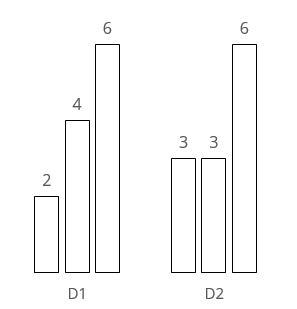Fair Shares and Degrees of Inequality

What does justice demand of individuals in an unjust society? Chris Marshall considers the personal implications of distributive justice.
The distribution of wealth and other goods in the actual world is unjustly unequal and will continue to be unjustly unequal for the foreseeable future. For the fortunate few, life is better than it might be if our unjust world were transformed into a just one. By contrast, many people are worse off than they could be if unjust inequality were removed.
Most egalitarians think that the state has an egalitarian reason to coercively reduce unjust inequality through redistributive policies. But philosophers have said little about whether individuals have an egalitarian reason to reduce unjust inequality through redistributive personal choices. Does justice demand that individuals voluntarily redistribute what they could be justly forced to redistribute through taxation? Or something else entirely?
One answer is that justice demands nothing more of individuals than compliance with their legal obligations to social institutions that are just, and perhaps that they play some part in the reform or abolition of unjust institutions. Yet this doesn’t seem to go far enough.
For example, people who avoid tax by using legal offshore accounts are condemned for not doing their just share, even though they are not breaking the law. And while many people are attracted to the idea that individuals could do nothing more to promote justice in their personal choices if all of our social institutions were fully just, it does not follow from this that individuals can do nothing to reduce injustice when our institutions are unjust. A view of the latter sort would imply that tiny changes to taxation policies would do more to reduce injustice than the better off directly redistributing their wealth to the point of equality.
Keeping Our “Fair Share”?
Instead, we might want to say that justice requires people to go beyond their legal obligations. We might say that individuals must do their “fair share” to reduce distributive injustice.
But what is a “fair share”? (What most people have in mind in the example of tax avoidance is that individuals comply with the “spirit of the law”, if not the letter. But most theories of distributive justice would imply a more demanding fair share than this.)
One answer is that each person is entitled to what they would have in the counterfactual world in which everything is distributed justly. But this is not so straightforward, for two reasons.
First, injustice can be reduced by increasing or (perhaps) decreasing the total amount of goods to be distributed (by “levelling up or down”), in addition to redistributing the distributive goods that already exist. So which is the correct benchmark to use when deciding what someone’s fair share should be?
Second, even if we adopt the intuitively attractive view that the correct benchmark is the one in which all existing wealth were justly distributed, none of our best ways of measuring distributive injustice imply that individuals have no reason to redistribute further once they reach or fall below their counterfactual fair share.
Comparing Distributive Injustice
To illustrate this point, it will help to use a simple example. Consider the following two distributions containing the same amount of goods, in which D1 represents the status quo.
Let’s make the simplifying assumptions that each person has an equal claim to a share of the goods to be distributed and (perhaps contrary to fact) that people do not have special claims or entitlements to things they have already legally earned or been given. Given these assumptions, each person’s fair share is 4 units. How do our best theories of distributive justice compare the two distributions?
Some people, like G.A. Cohen, think distributive justice is about distributive patterns. On this view, we compare two distributive patterns and work out which is more just according to the pattern.
Others, like Thomas Nagel, believe that distributive justice is about justifiability. When comparing two situations, we ask which of the two situations can best be justified to each of the individuals in that situation.
Still others, like John Rawls, believe that distributive justice is about what it would be in everybody’s rational self-interest to agree to if they were behind a veil of ignorance which strips them of all knowledge of who they are.
When comparing the distributive patterns, D2 is more equal than D1 (this is somewhat controversial, but is true on most measures).1 D2 is also more justifiable to each person than D1, due to the fact that, being worse off, the first person in D1 has a stronger claim to goods than the second person. D2 would also be rationally preferable to D1 behind a non-probabilistic veil of ignorance, since it would be rational to maximise the size of the worst-off person’s share in such a situation.
Yet D2 could be brought about from D1 if the second person transferred one unit of advantage to the first person, placing the second person below their counterfactually fair share. So none of these views imply that individuals can do nothing more to reduce injustice once they have done their “fair share” according to a counterfactual fully just benchmark.
Taken together, these claims have two implications. First, not only do we have an egalitarian reason to go above and beyond what the law requires in our redistributive actions, but we have an egalitarian reason to make ourselves worse off than we would be in a counterfactually fully just world (insofar as we can identify what that world would look like). Second, some of our best theories of egalitarian justice have similar practical implications for individuals, despite their different moral foundations.
Chris Marshall is a PhD student in the Department of Philosophy, Logic, and Scientific Method. His thesis concerns what egalitarian theories of justice imply for individuals faced with unjust inequality, and normative constraints on reducing inequality in the actual world. This post first appeared on LSE's Philosophy, Logic and Scientific Method Blog.


